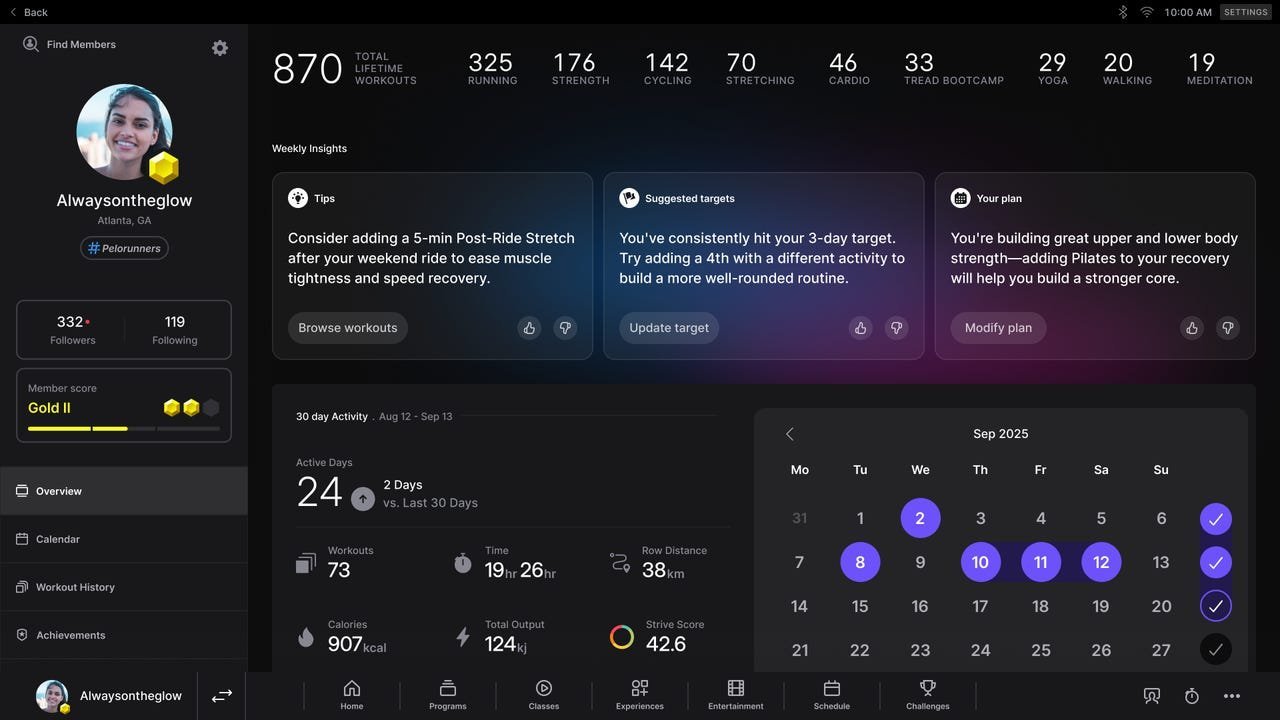Peloton unveils its AI-powered coaching system, Peloton IQ, bringing computer vision and personalized training to both new and existing equipment. The move signals a major pivot toward AI-driven fitness as the company aims to regain market momentum through advanced biometric tracking and real-time form analysis.

Peloton is making its most significant technological leap since the pandemic-era fitness boom with the launch of Peloton IQ—an AI-powered coaching platform that uses computer vision and biometric analysis to transform stationary bikes, treadmills, and rowers into intelligent training partners. Announced alongside five new hardware models (including the Cross Training Bike+, Tread+, and Row+), the system represents a fundamental shift from Peloton's class-centric model toward hyper-personalized, AI-driven workouts.
The Brains Behind the Burn
Peloton IQ acts as a virtual trainer that synthesizes data from multiple streams:
- Computer vision analyzes body movements for real-time form correction
- Biometric integration pulls health data from Apple Watch, Garmin, and Fitbit devices
- Performance history references past workouts to adjust difficulty and goals
- Audio analysis syncs movements to music tempo during classes
Unlike basic rep counters, the AI provides nuanced feedback like weight recommendations, stride adjustments, and personalized cool-down routines. "This is more than an upgrade; it's a relaunch," stated CEO Peter Stern, positioning Peloton IQ as a core differentiator in the crowded connected fitness market.
Hardware Meets Intelligence
While existing Peloton devices gain Peloton IQ via software updates, the new hardware lineup unlocks full capabilities:
- Movement-tracking cameras enable precise form analysis
- Hands-free controls respond to voice commands during intense sessions
- Sonos-powered speakers deliver immersive audio coaching
 Peloton IQ's interface showing performance metrics and AI-generated insights (Image: Peloton/ZDNET)
Peloton IQ's interface showing performance metrics and AI-generated insights (Image: Peloton/ZDNET)
The strategic emphasis on AI comes as Peloton's revenue hovers at $2.49 billion—down nearly 40% from its pandemic peak. Facing stiff competition from smartwatch-based fitness platforms and generative AI workout planners, Peloton's bet hinges on convincing users that dedicated hardware with integrated sensors provides irreplaceable training value.
Why Developers Should Watch Closely
- Edge Computing Challenge: Real-time form analysis requires on-device processing, pushing boundaries for consumer hardware
- Health Data Ecosystem: Deeper Apple Health/Google Fit integrations demonstrate how specialized devices can augment platform ecosystems
- Ethical Implications: Continuous camera monitoring in homes raises new privacy questions for AI implementers
Peloton joins companies like Oura and Whoop in the race to monetize AI-curated health insights. Yet its unique hardware-software approach tests whether consumers will prioritize specialized equipment over smartphone-centric solutions. As AI reshapes fitness, the stakes extend beyond Peloton's revival—they may redefine how we architect ambient computing in personal spaces.
Source: ZDNET

Comments
Please log in or register to join the discussion